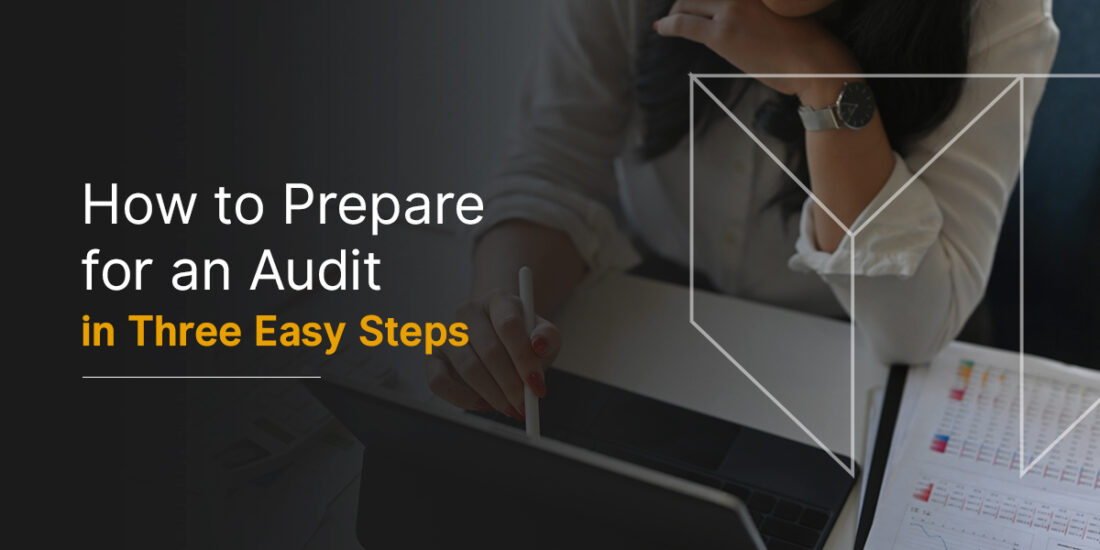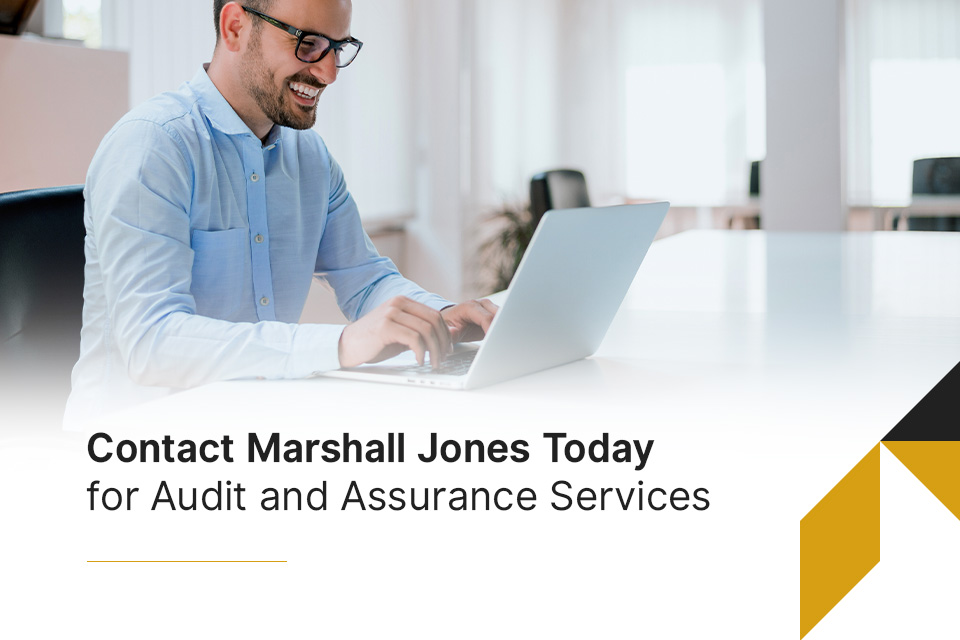How to Prepare for an Audit in Three Easy Steps

You know you need an audit — but do you know how to prepare for it? From determining which type of audit you need to choosing the right firm, you need to follow specific steps to ensure you reach your goals.
What Is an Audit?
An audit is an in-depth examination and objective evaluation of an organization’s financial records to determine whether they reflect fair, accurate information. Audits can be internal or external.
In-house employees carry out internal audits, while certified public accounting (CPA) firms often handle external audits and document their findings in detailed audit reports. IRS audits also represent external examinations conducted by the organization’s revenue agents.
How to Prepare For An Audit
Preparing for an audit involves several key steps to ensure a smooth process. First, get acquainted with the auditor to establish a good rapport and understand their expectations. Next, clean up your financial records by organizing receipts, tax statements, bank statements, and other pertinent documents. Stay informed about internal changes within your organization, such as shifts in management or new financial policies, and keep abreast of external changes like regulatory updates. Thoughtful preparation for the actual audit is crucial; gather all necessary documents and evidence to support your financial reporting. Lastly, open a line of communication with your auditor well before the audit start date to convey important information and deadlines, ensuring a more efficient and effective audit process.
Keep the following steps in mind as you plan for an audit:
1. Determine the Audit You Need
You will first need to decide what type of audit is necessary for your business. For example, a construction company would likely need a bonding or licensing audit.
Consider whether you need a balance sheet audit or a full audit.
Balance sheet audits examine your business’s assets, liabilities and equity in detail and compare them to previous periods. Auditors will investigate the reasons behind changes and verify the information’s accuracy and compliance with generally accepted accounting principles.
Full audits go a step beyond the balance sheet. During a full audit, your CPA will thoroughly dig into your financial picture. They will confirm income and its sources and verify operating expenses, sometimes in line-item detail. For example, an auditor may match accounts payable claims with the actual invoices your business received. After conducting a full audit, the CPA will issue an audit report stating their opinion on the information’s accuracy. These reports help boost confidence in a company’s financial condition.
Single audits are another option, especially if your organization is a nonprofit receiving government funding. During a single audit, the CPA has a narrower scope — the auditor focuses on accounting for a specific government award. They will investigate broader financial statements as part of their review to determine precisely how your organization managed the money you received from a government program. Its purpose is to confirm you followed any associated rules or restrictions for the money’s use.
2. Choose a Certified Public Account (CPA) Firm
Now that you know what type of audit your company requires, you should research CPA firms. It’s critical to find a reliable and trustworthy option to ensure you are getting the correct service from trusted professionals. Follow these steps to choose the best firm for your business:
- Ask about their specialty: In many cases, you can find a firm specializing in your industry, increasing the CPA’s likelihood of conducting a dependable audit.
- Check their history: CPAs receive licenses from their state, so you can research the accountancy board’s database. Doing so allows you to view essential information, including any disciplinary actions.
- Verify their memberships: Many CPAs belong to industry organizations, like the American Institute of Certified Public Accountants. These organizations promote integrity and ongoing education, so membership is a sign of your CPA’s values.
- Confirm their experience: While all CPAs have passed the required exams, there’s a benefit to working with an audit-experienced firm. Those who’ve served the industry longer generally have more in-depth knowledge of the process to make audits smoother.
- Check their fees: CPA firms may work on different fee structures based on the hours or complexity involved. Ensure you understand payment arrangements so you can compare costs between CPAs accurately.
- Confirm audit representation: If an IRS audit happens, you’ll likely want a skilled CPA in your corner. Reputable firms should offer audit defense to help represent you in dealings with the IRS.
- Ask people you trust: Referrals from friends, family and business advisors can help you identify the ideal CPA for your audit. Sometimes, they can also prevent you from engaging the wrong one.
3. Start Preparing for a Financial Statement Audit
The last step is to prepare for the audit. Communication is crucial, especially for loan covenant or federal spending requirement compliance. Make sure you know the best way to communicate with your CPA firm. That way, you can convey important information, such as when your audit’s deadline is, to ensure the firm conducts it correctly.
It’s also essential to start gathering important documents and plan for the time it takes to work with your auditor. That way, it’s easier and faster for them to complete your audit because you are ready to assist as necessary.
The documents needed for an audit will vary based on the audit type and scope and the structure of your business. Generally, you should expect to provide supporting evidence for your financial reporting.
Preparing for an audit:
- Gather expense evidence: Have receipts, paid tax statements and other evidence of business expenses available for your auditor. The auditor will align these with any allowable deductions to verify their existence and eligibility.
- Present income evidence: Ensure you have bank statements, deposit receipts and customer invoice copies to give your auditor. They’ll be able to confirm revenue claims and reconcile receipts with journal entries faster.
- Provide access to past third-party opinions and confirmations: Allow your auditor to review any previous objective opinions and audit reports. They can use these as supplemental resources to form a more comprehensive audit trail.
For privately held corporations, auditors may request additional documents that speak to financial health. These include:
- Cap tables representing your company’s ownership allocations to confirm value, expenses and the owner’s equity entry on your balance sheet.
- Form 409A to set forth the fair market value of outstanding stock and ensure you’ve valued equity-based compensation accurately.
- Other stock-based compensation reports detailing your valuation calculations.

Contact Marshall Jones Today for Audit and Assurance Services
If you follow these three steps, your audit will run smoothly without requiring extra effort. When you need to choose a reliable firm for an audit at your business, come to Marshall Jones.
Our audit and assurance services help gather financial records and show your management team the next steps. Whether you are trying to maintain or grow your company, our team helps you with audit and assurance services to satisfy government authorities and other entities that require them.
We use a risk-based audit approach, provide valuable recommendations and report our findings to the necessary parties. We have over 30 years of experience, and our services help you save by not requiring you to hire an in-house CPA.
Contact the Marshall Jones team today to learn how our audit and assurance services can provide you with peace of mind and help your business succeed.
